Antonia Fernández, vice chair of the Bethlehem City Democrats, moved to the South Side once she learned that the city of Bethlehem had elected Latina councilwoman Olga Negrón.
The debate about whether someone outside of a group can represent that community adequately is ongoing, but Fernández’s story is a testament to how much a direct tie to your own community can motivate you to participate in a system that often leaves minority groups behind.
It is important to remember that when our voting system was created, only white land-owning men were allowed to participate. Upon its inception, the system viewed anyone who didn’t fit in the group eligible to vote as not valued enough to have a voice.
While national voter turnout did not take a dive during the most recent midterm election as it has historically, the number of communities that feel overlooked by the system remains constant.
Still, whether they decided to vote or not, it appears part of the South Side community feels like they don’t have a voice.
At the Hispanic Senior Center Lehigh Valley, located at 520 E. 4 St., many seniors said they are displeased with the current political system.
“I don’t feel confident that (politicians) are representing us and handling the issues at hand,” said Lousia Soledad, a long-time South Side resident and member of the senior center.
As she placed her chips on the bingo board in front of her at the center, Soledad expressed an overall frustration with the politicians. She said they spend too much time “stabbing each other in the back” than actually talking to their constituents.
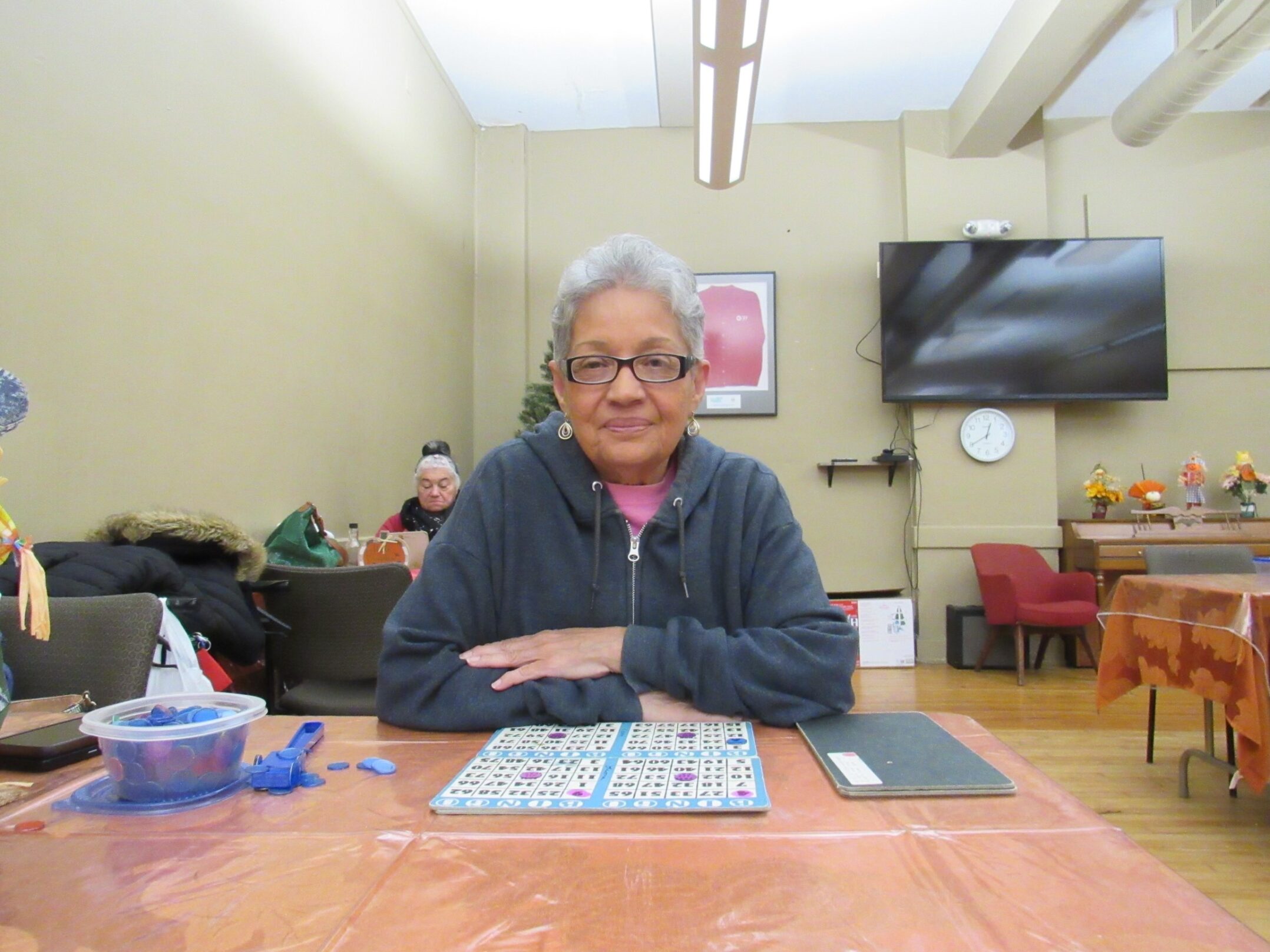
Lousia Soledad plays bingo at the Hispanic Senior Center Lehigh Valley on Friday, Nov. 4. She spoke about her sentiments about voting and representation. (Rachel Gruber/B&W Stafff)
While seniors have some of the highest regular voter turnout, Hispanics, who are the fastest growing group of eligible voters in the U.S., have a historically low turnout. In 2020, they made up 20% of all non-voters, but made up 14% of eligible voters in the US.
Almost 30% of Bethlehem is Hispanic or Latinx, according to the most recent census. Despite the elder population’s tendency to vote in high numbers, these Hispanic seniors displayed their distrust in the political system.
On the Friday before the midterm election, Soledad said she was unsure if she was going to vote. Feeling disconnected from politicians deters some Hispanic citizens — who make up 15.3% of Northampton County — from voting.
This apathetic sentiment is shared not only by other South Side residents, but nationally, as well. According to an IPSOS study, 53% of non-voters feel that it makes no difference who is elected president.
While it is not evident why these people lack trust in the presidency as an institution, something else is clear. Many Americans, especially non-voting Americans, don’t feel heard by either side of the aisle.
In the 2022 midterm elections, 32.4% of the population voted in Lehigh County and 58.38% of the population in Northampton County voted.
It is easy to say that apathetic voters are to blame for the stagnance of our country’s electoral system if they are not voting for change.
But, when representatives lack a connection to your group or community, it’s easier to feel like your voice doesn’t matter.
Rather than describe this group as apathetic, implying that they are not concerned about the country’s future, we need to take a deeper look. Maybe they are overlooked by the system because it wasn’t built for them.
Adequate representation in government is one way to increase participation in the election system.
Beyond that, we must address the underlying truth that some people who don’t participate in the system are ones that were left out during its inception and continually feel unheard.
Reform takes time and participation. The first thing we can do is increase representation of minorities in government and begin to reform the electoral system from the inside out.
On the South Side, representatives have started to look like some of the constituents that they do represent, like the first Latinx councilwoman, Olga Negrón.
If it weren’t for Negrón’s presence on Bethlehem’s City Council, Fernández may have never moved to the South Side.
Making generalizations about groups, such as the Hispanic community, that vote at a historically lower rate, ensures that the political system will never represent everyone.
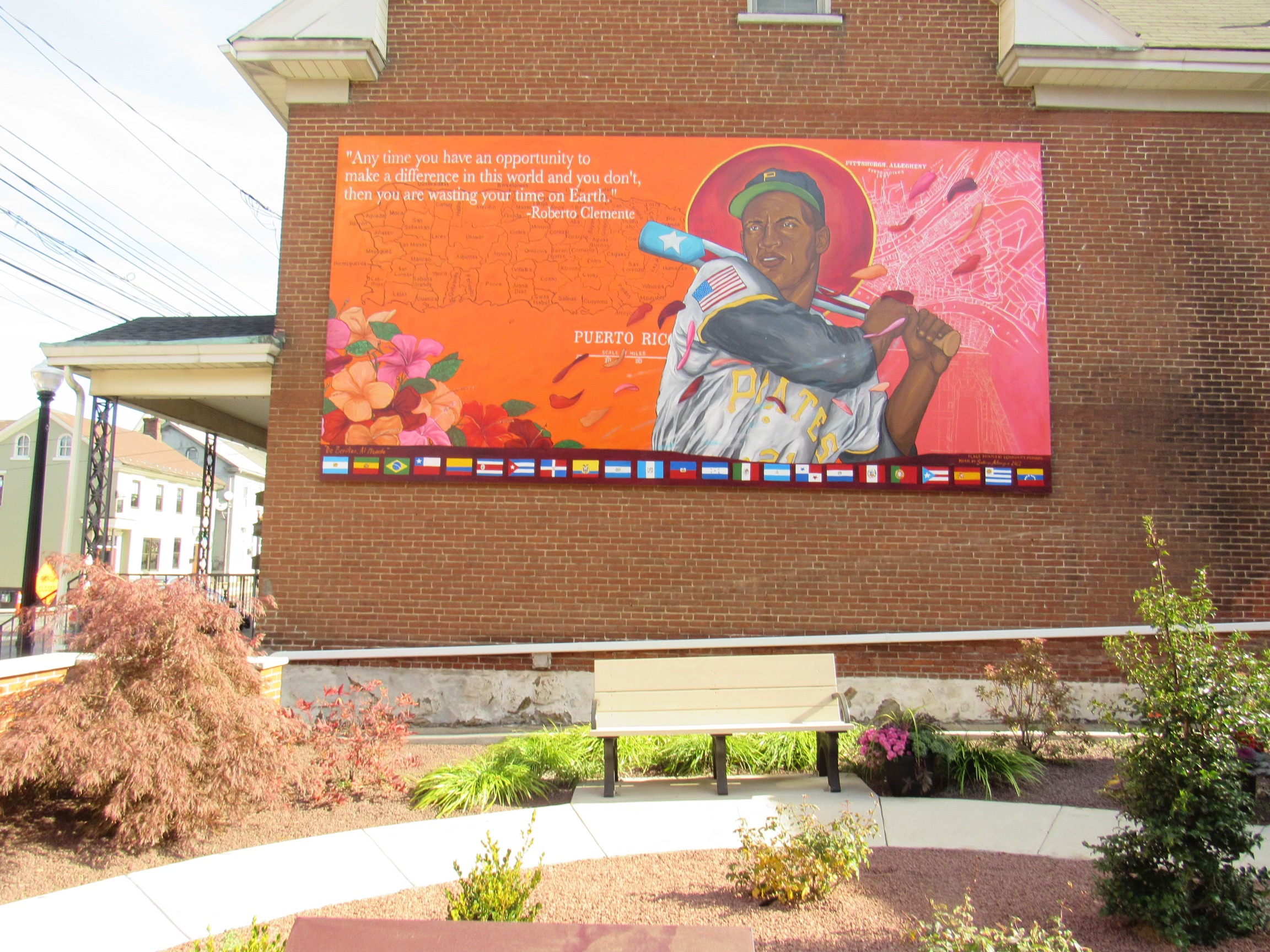
A mural outside of the Hispanic Center Lehigh Valley depicts Roberto Clemente with a backdrop of his native island, Puerto Rico, and his adopted hometown of Pittsburgh. The Center offers spaces for Hispanic seniors to engage with others. (Rachel Gruber/B&W Staff)
Through diversifying representatives and listening to concerns from minority groups, we can strive for a true democracy in local and federal governments.

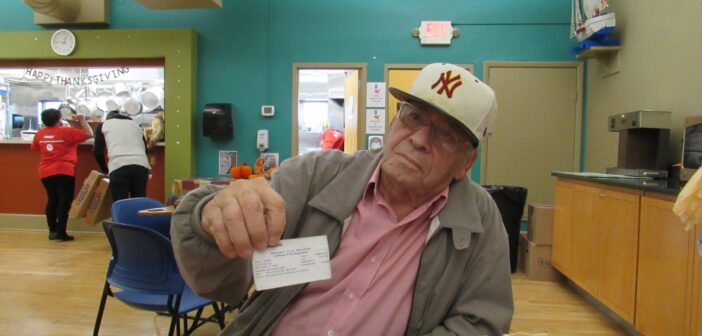

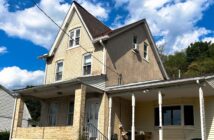
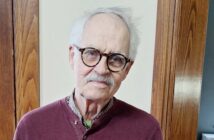

Comment policy
Comments posted to The Brown and White website are reviewed by a moderator before being approved. Incendiary speech or harassing language, including comments targeted at individuals, may be deemed unacceptable and not published. Spam and other soliciting will also be declined.
The Brown and White also reserves the right to not publish entirely anonymous comments.